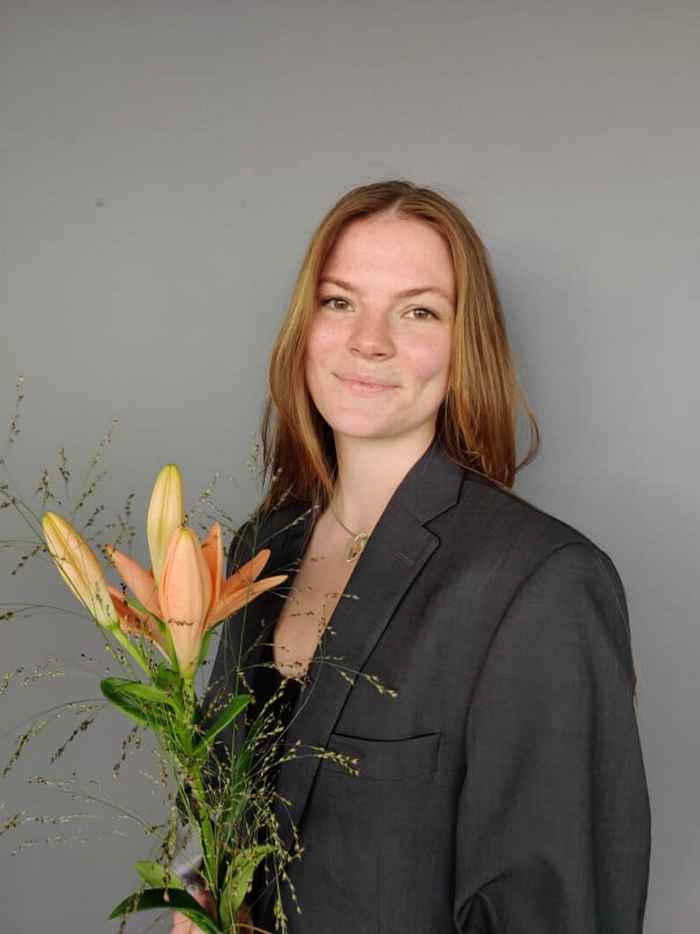Antonia Lilja
"Keep engaging in discussions with people in different fields"

How did your educational journey continue after graduating from PPLE?
After graduating from PPLE, I spent the following two semesters working as a research assistant in a project of my former thesis supervisor. Getting this hands-on experience after PPLE was very fun and proved very valuable in the following steps of my studies. I also completed some open access courses in Neuropsychology, as I had become very interested in this during PPLE.
Following this interest, I then completed a Neuropsychology Research Master‘s programme at Maastricht University, combined with a neuroscience internship at the University of Helsinki.
Reflecting on your experience at PPLE, how has the programme equipped you for your journey into research beyond your Bachelor’s studies?
Through PPLE I have learned to stay open minded and curious about different topics. The interdisciplinary nature of PPLE really programmed me to keep thinking about ways in which the research topic I'm working on can be viewed and addressed from different angles, and what methodologies from different fields could bring to interpreting questions about cognitive psychology.
Your research focus is related to the question “How do stressful encounters affect the memory of surrounding events?”. Can you briefly explain what exactly you are researching right now and how you are trying to find answers to this question?
Right now, I am researching how the memory for completely neutral, non-stressful information, can be changed if something stressful occurs within a critical time window. For example, imagine you are at the cinema. Halfway through the movie, the fire alarm goes off, you and the other spectators are evacuated. How does this experience influence your memory for what you've seen so far of the movie? What about things that you did before the cinema, such as the face of the person who sold you the ticket, the breed of the dog you saw at the entrance, what you had for lunch right before? And what about your memory for things that happen right after you leave the cinema?
To answer this question, I am currently collecting data in two different research projects where I look at what kinds of cognitive mechanisms could drive this influence.
In the current real-world context marked by events like the Covid pandemic, surging conflicts such as in Ukraine and Israel/Gaza, in combination with constant news exposure, how does stress impact our memory, and what practical insights does this research offer for individuals and society?
This is a really interesting and difficult question, because the events that are mentioned actually can have opposing effects on memory.
In general, some level of stress tends to improve memory, which makes sense from an evolutionary standpoint. When we experience stress, it signals to our brain that the information we are encountering is important and should be stored for the future. However, with an extended or hyperactive physiological stress response that you might see in for example, panic disorders, memory can actually deteriorate. Short bursts of stress thus help us remember things, but if stress lasts, this can have detrimental effects on not only memory, but other cognitive functioning as well.
For example, related to Covid-19 we see opposing effects on memory depending on the time point we are measuring. Recently a lot of research has come out showing a collapse of time perception and less vivid memory from the lock-down months. To simplify, the fact that the daily routine became so monotonous for many people resulted in fewer vivid memories of distinct events taking place during these months, distorting time perception. On the other hand, very stressful events, for example, finding out that universities will be closed, resulted in a super-vivid flashbulb memory for many.
Demystifying these effects to the public would help people in both recognizing and addressing stress related memory issues. This would also help to reduce the stigma against asking for help. People need to have access to concrete language and terminology in order to speak about issues they are facing.
A major take-away is also that while it is important to stay aware of events, there comes a point where constantly updating your newsfeed causes more harm than good to your cognitive functioning, mental wellbeing and everyday functioning.
What would be your advice for current PPLE students and recent graduates who are shaping their paths in the programme and beyond?
I would advise to gain practical experience in your field of interest. This is the most effective means of building strong credentials. Another advantage of the programme’s small scale is the opportunity it offers to establish meaningful connections with professors early on during your Bachelor’s studies—a privilege that shouldn't be overlooked.
Moreover, keep engaging in discussions with people in different fields. My most interesting ideas come from discussing work with friends from other disciplines. It keeps you grounded and stops you from becoming fixed in one track. Knowing what's going on in other fields in terms of methodology development is also very helpful for coming up with novel research ideas. Another good way to look beyond your own nose is to read curious things that have nothing to do with your own field from time to time.